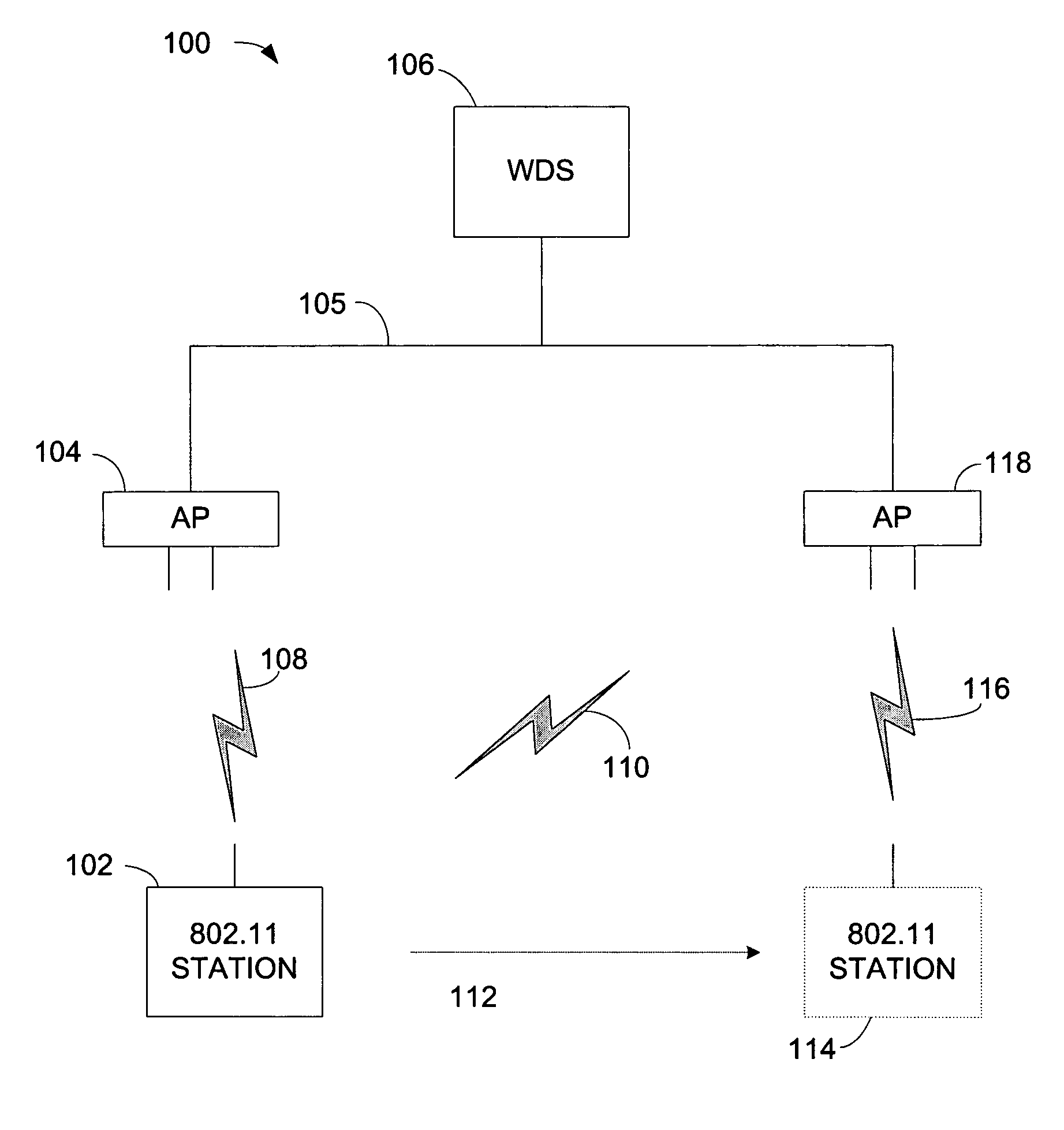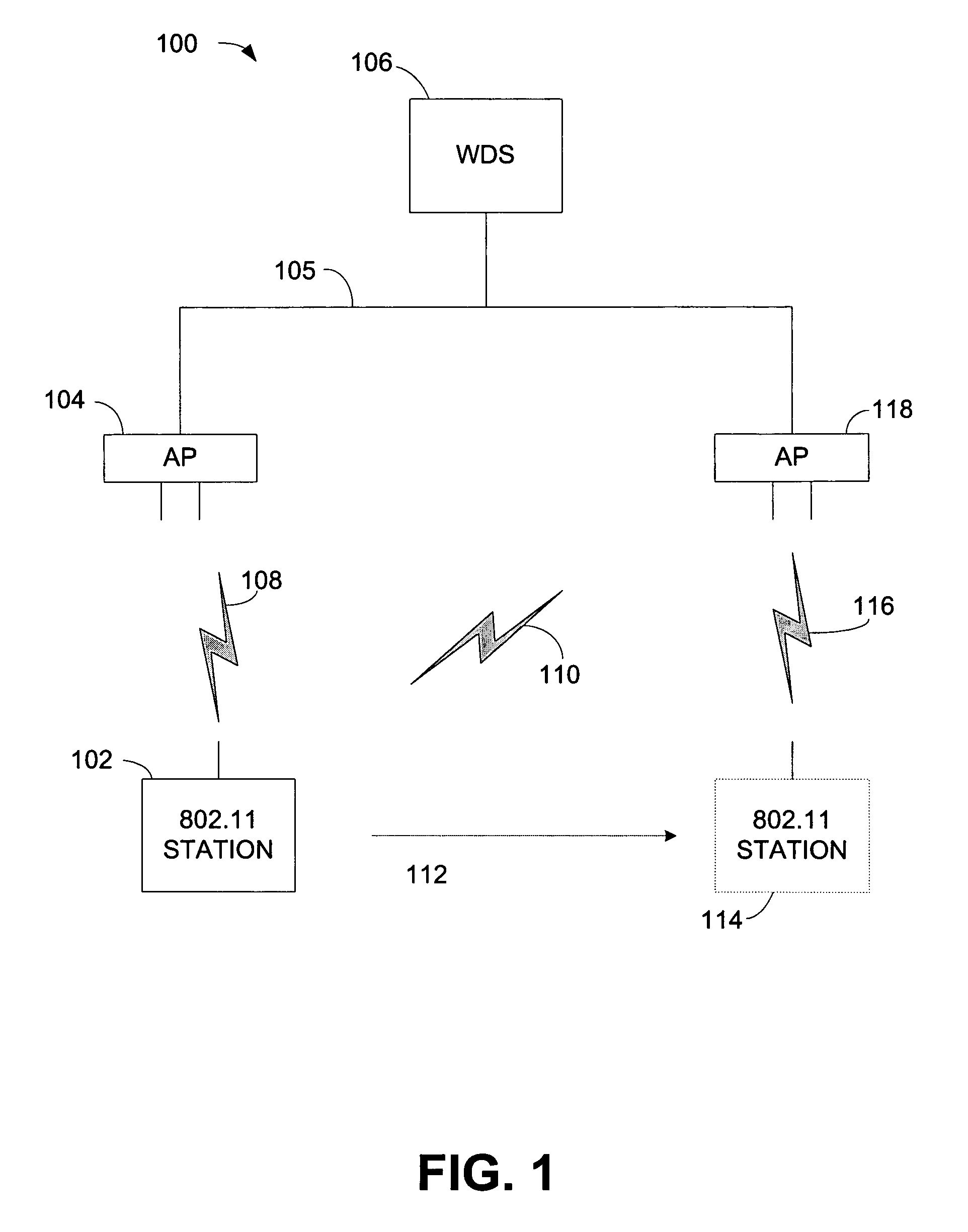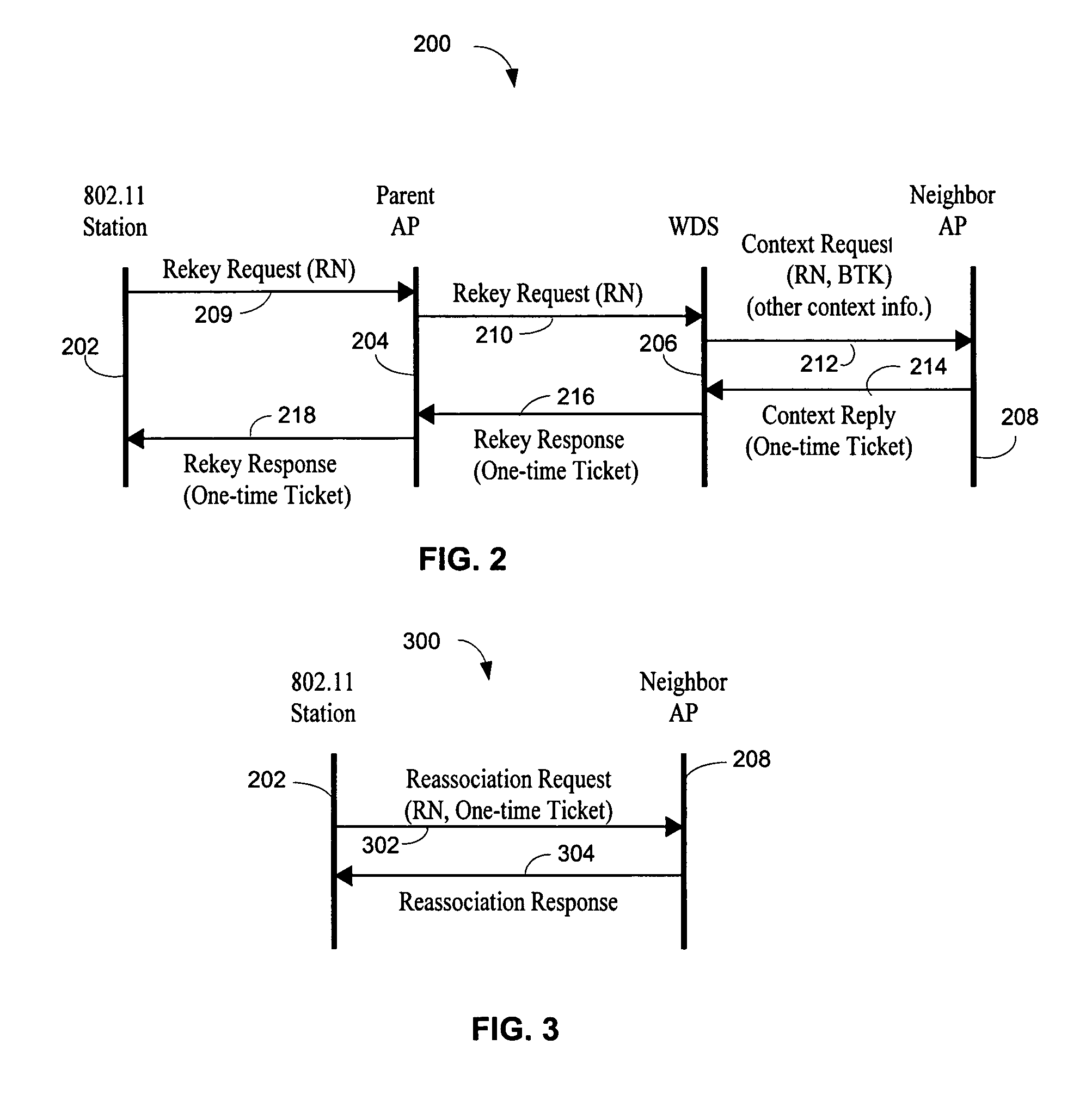Method and system for pre-authentication
a preauthentication and wireless technology, applied in the field of wireless networking, can solve the problems of adding traffic between the parent ap, affecting the connection between the wireless station, and affecting the time-sensitive applications, so as to reduce the number of messages, quick establish a new session, and add any extra messaging overhead
- Summary
- Abstract
- Description
- Claims
- Application Information
AI Technical Summary
Benefits of technology
Problems solved by technology
Method used
Image
Examples
Embodiment Construction
[0027]Throughout this description, the preferred embodiment and examples shown should be considered as exemplars, rather than limitations, of the present invention. The present invention relates generally to techniques to pre-authenticate a wireless station and to quickly establish a new session between a wireless client and a new parent access point. Because the wireless station is already pre-authenticated with the new parent access point, when the wireless station roams to the new access point it reassociates with the new parent access point. The reassociation is a two-way handshake to establish a new secure session, corresponding unicast and multicast message protection keys, and mutual authentication with the new access point. The two-way handshake can be piggybacked on existing IEEE 802.11 standard Reassociation Request and Reassociation Response messages, therefore, the present invention does not add any extra messaging overhead to roaming. The wireless station can generate a...
PUM
 Login to View More
Login to View More Abstract
Description
Claims
Application Information
 Login to View More
Login to View More - R&D
- Intellectual Property
- Life Sciences
- Materials
- Tech Scout
- Unparalleled Data Quality
- Higher Quality Content
- 60% Fewer Hallucinations
Browse by: Latest US Patents, China's latest patents, Technical Efficacy Thesaurus, Application Domain, Technology Topic, Popular Technical Reports.
© 2025 PatSnap. All rights reserved.Legal|Privacy policy|Modern Slavery Act Transparency Statement|Sitemap|About US| Contact US: help@patsnap.com



